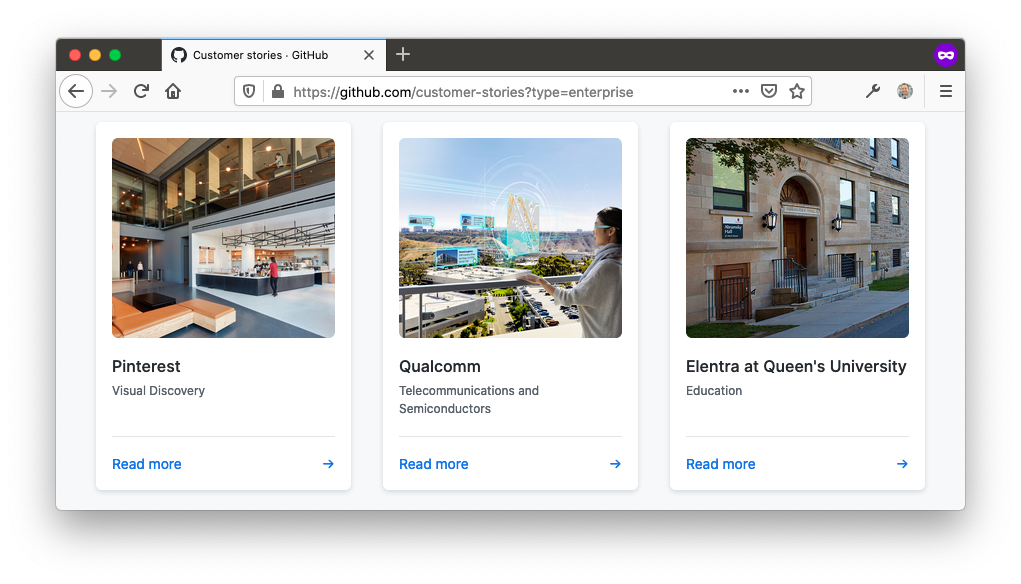On behalf of the Elentra Consortium community, I am pleased to announce that Elentra ME 1.20 and the 1.19.1, 1.18.2, and 1.17.3 maintenance releases are now available to all consortium participants.
For more detailed information and changes related to this release, please read our comprehensive What’s New in Elentra ME 1.20 for administrators documentation or the associated Jira Release (1.20.0, 1.19.1, 1.18.2, 1.17.3) for technical staff, which includes a total of 218 completed issues.
Features to Know in Elentra ME 1.20
Improvements to the Visual Calendar
Contributors: Washington State University, Elentra Consortium
Learners can now see their personalized Clinical Rotation schedule, assignment due dates, and recorded absences/leaves directly on their Dashboard & Learning Event calendar instead of having to switch between different tabs. This functionality is also available to administrative staff once they have selected a learner to view. There is also a new icon showing users when the contents of a Learning Event they’ve previously viewed has changed.
Improvements to Communities and Course Websites
Contributors: Elentra Consortium, UCLA, Elentra Cloud
The reliability and behavioral consistency of email notifications to community members (e.g., learners) within Community Announcements, Polling, and Events have been improved. There is also a new setting to control whether community administrators can create guest accounts or not. Improvements have also been made to the drag and drop file upload within Document Sharing and the common rich text editor component.
Learning Event Enhancements
Contributors: Elentra Cloud, Washington University in St. Louis
Organizations can now configure different Learning Event colors based on Learning Event Type (e.g., Lecture, Lab, Directed Independent Learning). This functionality is in addition to the existing color selector with an event or course. The ability to view the Learning Event location and attendance requirements from the “List View” on the Events page is also now visible.
Team-based Learning (TBL) Integration
Contributors: Kaiser Permanente, Elentra Consortium
Exciting new support for facilitating in-class or online Team-based Learning (TBL) sessions is now available by default. By enabling TBL support within a Learning Event, instructors can administer and review progress for in-class or online Individual Readiness Assessment Tests (iRATs), Group Readiness Assessment Tests (tRATs), and an MCQ-based Application Exercise (Appex).
External Assessor Management
Contributor: Northern Ontario School of Medicine
Administrative staff can now easily manage the list of External Assessors created by users in the Assessment & Evaluation module by going to Admin > Manage Users > Manage External Assessors.
Improvements to Course Gradebooks
Contributors: Elentra Cloud
Several new features and bug fixes for the Course Gradebook are available in this release of Elentra, including:
- Course Website Discussion Forums can now be associated with a Course Gradebook, which greatly simplifies marking or reviewing a learner’s participation in course discussions.
- An administrator can enable functionality to allow scores of more than 100% on Gradebook Assessments.
- A new “Numeric Float” marking scheme has been added, enabling gradebook administrators to record numeric grades that do not have a denominator for the learners (e.g., 1534).
Assessment & Evaluation Enhancements
Contributors: Queen’s University, Elentra Cloud
The Assessment & Evaluation module continues to benefit from many improvements and enhancements by consortium participants. Some of the highlights included in this release are:
- Several new standardized reports have been added to the Reports section making your assessment data readily available.
- A new type of Grouped Item has been introduced to hold a collection of Numeric items. The person who creates the form can define a static total, and the person completing the form can define a total for that competition.
- Reciprocal Distributions now support the ability to trigger tasks based on delegation-based distributions.
Curriculum Explorer Enhancements
Contributor: Elentra Consortium
The Curriculum Explorer can now report on curriculum tags that have been indirectly mapped to the selected course(s). This allows users to see, for example, where other taxonomies (i.e., AAMC PCRS) are taught without actually mapping them directly to a course.
System Reports Improvements
Contributor: Queen’s University
In addition to several fixes and improvements to the visual graphs throughout, administrators can now export report data in both Comma Separated Values (CSV) and PDF format on nearly all reports in Elentra. This ability significantly improves the accessibility of the data without technical intervention.
AAMC Curriculum Inventory Report Improvements
Contributor: UT Southwestern
The AAMC Curriculum Inventory XML report now includes the MedBiquitous assessment methods and resource types that have been mapped directly to Learning Events.
Clinical Experience Logbook Performance Improvements
Contributor: Elentra Consortium
Significant performance improvements have been made when loading Clinical Experience Logbooks for both learners and administrative staff, especially for implementations with heavy logging requirements.
Clinical Experience Rotation Scheduler Improvements
Contributor: University of Toronto
The Clinical Experience Rotation Scheduler now supports the ability to schedule Rotations by Course Group, in addition to scheduling by the individual learner. This allows institutions with larger cohorts that operate in small groups to much more efficiently schedule clinical rotations.
Exam Module Performance Improvements
Contributor: UCLA
Significant performance improvements have been made to the exam taking interface for learners, especially in situations where there are a significant number of active learners and large numbers of courses and exams.
Increased Flexibility for Institutional Numbers
Contributor: Elentra Cloud
Institutional identifiers (e.g., student numbers, staff numbers) can now contain non-numeric characters. This may appear to be a trivial enhancement; however, this will positively impact several institutions with staff/student numbers containing special and/or alpha characters and spaces (e.g., ST-002154323, 00122045, B*20022011034).
For further information or clarification regarding information contained in this release announcement, please contact:
Matt Simpson
Associate Director, Elentra Consortium
Faculty of Health Sciences, Queen’s University
Website: https://elentra.org
Telephone: +1 613-533-6000 x78146
Email: [email protected]















